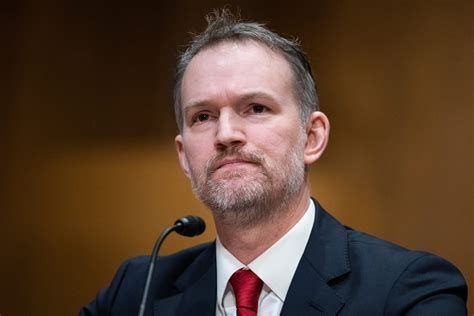President Trump’s trade policies have stirred up a storm of discussions and debates in the economic realm recently. The administration has been at the forefront of implementing aggressive tariff strategies, causing ripples not only within the United States but across international borders.
Jamieson Greer, the U.S. trade representative, made a compelling case before the Senate Finance Committee about the urgent need for significant changes in America’s economy. According to Greer, the country has long been dependent on support from the financial sector and government expenditure, leading to an imbalance that requires correction.
In his testimony, Greer highlighted that around 50 countries had initiated talks with the U.S. to explore ways to establish fair trade practices based on reciprocity. This surge in interest reflects a global eagerness to reshape trade dynamics and foster more equitable relationships between nations.
The recent imposition of a 10 percent global tariff by President Trump, coupled with reciprocal tariffs on multiple countries, has sparked concerns about potential repercussions. China has swiftly responded by engaging in a tit-for-tat trade war with the U.S., setting off alarm bells among economists who now fear an impending recession.
Despite mounting criticism and warnings of adverse effects on various sectors of the economy, President Trump remains resolute in his stance on trade policies. He asserts that these measures are pivotal for reviving domestic manufacturing and bolstering industrial output within American borders.
Amidst escalating tensions, there is a glimmer of hope as reports emerge of ongoing dialogues between different nations to address trade imbalances. President Trump’s claims about countries expressing eagerness to strike new trade deals with the U.S. underscore a shifting landscape where alliances are being reshaped and recalibrated.
### Expert Analysis:
Insight from Economic Analyst Smith:
“Trump’s emphasis on rebalancing global trade relationships is triggering both apprehension and anticipation among stakeholders worldwide. The outcomes will heavily influence market stability and economic growth trajectories.”
In a bid to assuage fears and mitigate market volatility triggered by tariff uncertainties, President Trump took to social media platforms to share positive developments regarding potential negotiations with key players like South Korea and China. These diplomatic efforts hint at attempts to de-escalate tensions and find common ground amidst turbulent economic climates.
Greer’s assertion that numerous countries have expressed intentions for reciprocal trade arrangements underscores a broader shift towards fostering symbiotic trading partnerships globally. Such collaborative initiatives hold promise for promoting sustainable economic development while ensuring mutual benefits for all involved parties.
As discussions continue swirling around tariff implications and their far-reaching consequences, it remains crucial for policymakers to navigate this intricate terrain thoughtfully. Balancing national interests with international cooperation is paramount in steering economies towards resilience amid evolving geopolitical landscapes.



Leave feedback about this